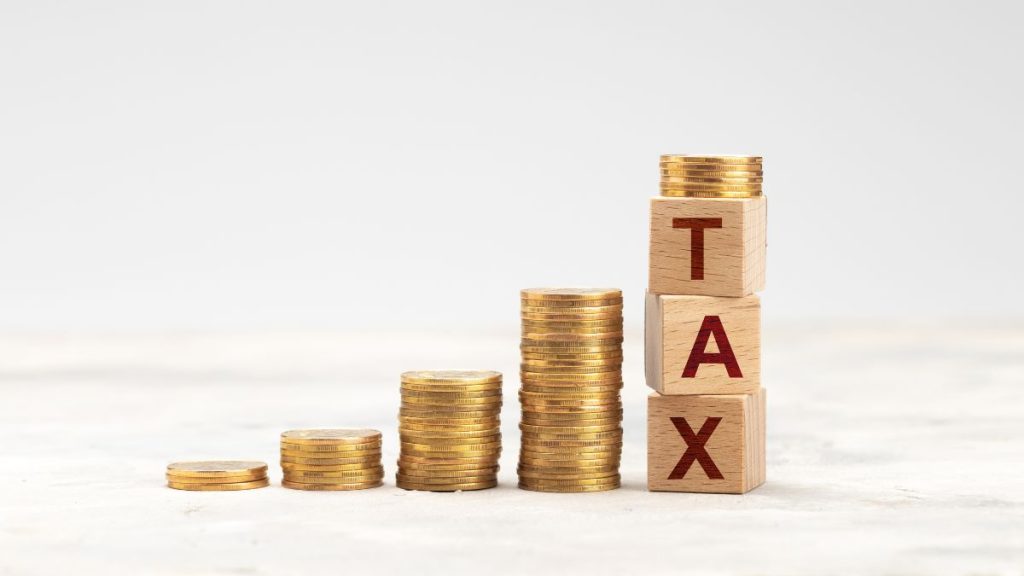Receiving a scholarship can be a huge boost, not just to your education, but your quality of life too. It might mean you can afford better study equipment, don’t need to work as many hours, or provide you with a place to live.
While there are undoubtedly many benefits to receiving a scholarship, one common question students have is whether or not they need to pay tax on scholarships. In this article, we’ll delve into the details so you can apply with peace of mind.
First off – what is tax?
If you’re unfamiliar with the concept, tax is essentially a bit of money taken off the top of your income and earnings. That money then goes to the government, who uses it to provide public services and build new infrastructure, like hospitals, schools, and roads.
Nearly everyone who has a job will pay tax. There are minimum amounts you need to earn before you start paying tax though. And most of the time, your employer will automatically withhold tax from your pay, so you don’t need to worry about a thing.
So the real question is do scholarships count as income, and consequently, will some of it be taken as tax? Let’s find out.
In Australia
If you receive a scholarship in Australia, chances are it will most likely be considered exempt income (that is, you don’t pay tax on it). However, there are a few conditions to meet:
- You must be a full-time student. Unfortunately, part-time students must always declare scholarships as income.
- Your scholarship is not tax exempt if, as a condition of the scholarship, you work or will work in the future for the person or organisation funding the scholarship.
- The scholarship must be provided to you principally for educational purposes. If the scholarship or your course involves unpaid work experience, this still counts as educational.
If your scholarship is taxable, you must include it on your annual tax return. The ATO will then assess whether or not you will have any tax deducted from your scholarship payments.
If you have any concerns or questions, we suggest you get in touch with the scholarship provider or the ATO.
In New Zealand
In NZ, the Inland Revenue Department has said that “scholarships or bursaries for attendance at an educational institution are exempt income”. This means the scholarship can be used for things like:
- Tuition fees
- Accommodation and living costs
- Books for study
- Travel to and from university
- Equipment required for study (including laptops and similar devices)
If you use any part of your scholarship to pay for items that are unrelated to your course, you will need to declare this as income. Note that scholarships are always counted as income for Student Allowance purposes.
If you have any concerns or questions, you should contact the scholarship provider or Inland Revenue.
In the UK
Payments from scholarships are generally exempt from income tax in the UK, provided:
- The scholarship holder is studying full-time; and
- They are studying at a university, college, school, or other educational establishment.
Scholarships and bursaries will not count towards your Personal Allowance (that is, the amount of money you can earn before you need to start paying tax). Standard Personal Allowance is currently £12,570 (Dec 2024) – so even if you have a job where you make £10,000 a year, plus receive a scholarship worth £5,000 a year, you won’t have to pay tax.
If you have any concerns or questions, get in touch with the scholarship provider or HM Revenue and Customs.
In Ireland
Income received from scholarships in Ireland is usually tax exempt, as long as you are:
- Receiving full-time instruction; and
- Studying at a university, school, or other educational establishment.
Note that this exemption does not apply to fellowships.
If you have any concerns or questions, talk to the scholarship provider or Revenue.
In the US
Scholarships and grants are tax-free in the US, as long as you meet the following conditions:
- You’re a candidate for a degree at an eligible educational institution; and
- The money is used to pay for:
- Tuition and fees required for enrolment or attendance; or
- Books, supplies, and equipment required for your course.
Scholarship money that is used to pay for “incidental expenses” (for example, accommodation, travel, and optional equipment) must be included in your income for tax purposes.
If you have any concerns or questions, contact the scholarship provider or the IRS.
In Canada
Elementary and secondary school scholarships are always tax exempt. Scholarships for post-secondary study are usually tax exempt, provided:
- You are a qualifying student;
- Studying at a designated educational institution; and
- Are enrolled in a qualifying educational program.
Even if you are a non-qualifying student, the first $500 is still considered tax exempt. For qualifying students, generally the entire scholarship amount is tax exempt.
If you have any concerns or questions, you should talk to the scholarship provider or the Canada Revenue Agency.
Ready to apply?
Keep in mind that these are all general guidelines. Whether or not you need to pay tax on scholarships will come down to your personal circumstances and the conditions of the scholarship. So if you have any doubts or concerns, make sure you talk to a professional first, whether it’s your careers advisor, someone from the university, or the tax office.
You can read more about scholarships, including application tips, on our website here.


